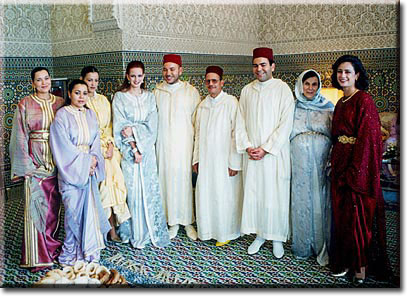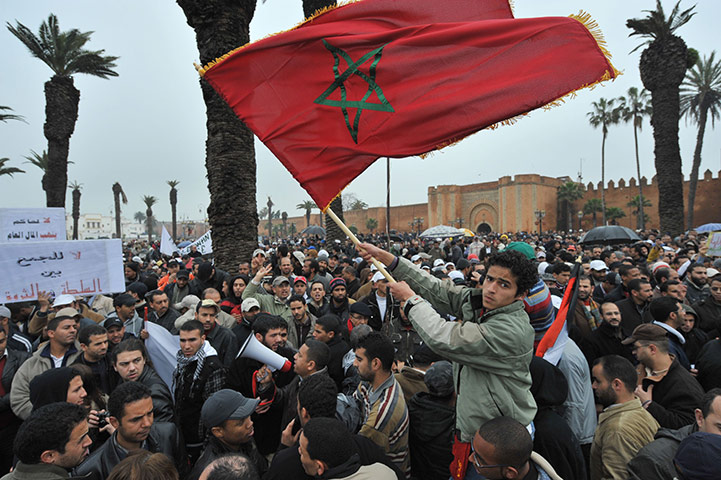An NYUAD future undergrad insight

It is quite unique to observe a new trend in Education, sourcing in the Gulf countries, namely Qatar and the UAE... students around the world have noticed the fierce advertising of a new "kind" of Universities who, strange enough, bear US brands while being located in the middle of the oily arabian deserts.
Quite an explosive cocktail one would say, especially that the Middle East was never recognized for being the harbor of US Universities with great caliber. (Some even still think of the Middle East as an empty desert populated by bedouins...)

After the invasion with tanks, Fighter jets and ground troops, the Arabian peninsula is now living the era of intellectual incursion, and incursion one would argue which benefits the locals more than it offers a fruitful ground for brainwashing and Westrn conditionning for propsective Arab leaders.
As I am heading to the New York University of Abu Dhabi to be part of the 2016 class, I believe an insight on the new educational fashion promoted by the wealthy Emirates from my part would be highly appreciated, as some of my countreparts evoked.
The first impression that most of us would have is the stereotype of the wealthy fat sheiks and how a University planted in the Gulf would ultimately enjoy the many financial benefits of the area...and indeed it turns out to be true!
The logistics, infrastructure and budget of the US Universities out there, or at leat the ones I know (NYUAD and Georgetown University in Qatar) are virtually limitless! Ranging from Luxurious dorms to 3D TVs, passing by scholarship packages which include countless benefits and Filipino servants clearing your plates, this new Gulf/US branded universities have the primary weapon to drag the brightest students who are more than willing to study for free and get pocket money over it.
Another prominent feature of these Gulf branches of imminent US Universities is the outstanding faculty they manage to gather in their campus corridors. Draging top professors from Yale, Harvard, Oxford and numerous prestigious institutions, the head hunters don't go easy in selecting a stunning panel of teachers to make the University stand out internationnally, with of course fat paycheques being thrown left and right.
More impressive, the University I am attending in a couple of months welcomes the NYU president John Sexton bi-weekly so that he can teach his famous course (Government and Religion) to both the NYUAD students and an Emirati selected group, raising concerns about the costs of such journeys without mentionning the fury it starts among the environementalists who would get pissed off when it comes to the presidents' carbon footprint...

From personal experience, I can totally confirm the luxury these Universities afford to their students, especially after a journey I undertook to Abu Dhabi as part of a candidate weekend (part of the selection process).
Bringing 70 students from around the world to the UAE and bearing all the costs of travel, stay in a luxury hotel with on the top fancy activities in the desert and in the 7 stars hotel Emirates Palace(fancy dinner in Emirates Palace. pic down), this is what one would call hardcore advertisement!

And indeed it is one of the most powerful tools to expand the influence of the University, making the students go crazy over how fancy the trip to AD was and spread the word about the institution among their fellow coyears...(Bear in mind that not all the students got admitted at the end, though they were brought from the end of the globe to take part in sample courses and undertake a campus tour among others...)
It is indeed impressive that the Arab Gulf countries are heading in this new educational road where new perspectives and revolutionary vision are being drawn alongside the tall skycrapers which burst in the deserts of Arabia!
John Sexton didn't spare words when describing the vision he sees taking place in NYUAD, a vision which reflected the eagerness of the UAE to take over the global leadership in the domains of Education, Business and Technology.

The UAE is a country which is still building and shaping itself, and the efforts of nation-building undergone in the oil rich emirates are to be met with an equivalent effort by the international community in order to foster peace and prosperity in times where wars are waged, ignorance is spread and hunger is a valuable currency in world marketing.
Coupled with the limitless financial capabilities made possible by the oil revenues, the new world vision taking place in the Gulf is to be taken on serious grounds, especially that the economic uncertainties in the West and the shifting of geopolitical centers to the East makes the emergence of centers of power in the Gulf a certain outcome. A clear display of such ground breaking changes is the shining of the star of Qatar in the last Arab Uprising where the tiny country unblocked huge funding ans tactical moves which threw it on the front line of those benefiting from the advantages of regime removals.

From organized protests in Qatari studios to political and logistical support to rebels, without forgetting the highly trained media staff which organized the unfolding of the revolutions in Aljazeera corridors, Qatar has shown that the determination of the Gulf countries to enclench its fist and grab the torch of leadership is not an ephemer fantasy, but a true vision for a New World Order where the rules of the global gameplay are drawn differently.
Heavy International investments are no more than a small fraction of what the Gulf has to offer, yet, the era of subordination and passive politics is now gone. Turning from the receiver to the active player, the Sheiks of Arabia have learned the lesson and are ready to make drastic changes (relatively ;) in order to channel the power of oil into palpable holdings in politics, business and education.

The conventional is not welcome in the Gulf of the 21st century, and so is the idea behind hosting US campuses while boosting their capabilities to make them outsmart their mother institutions back home. Give them money, give them logistics, give them buildings, internships, stunning faculty, countless research opportunities, study abroad programs, trips, conferences, evenings with top world personalities, luxury in its most mindblowing forms, and collect the results!
It is still an experimental process which found many supporters and critics, yet the fact that there is a genuine willingness to move the Gulf forward and make it a new hub for intellectual, political and economic leaps brings hope and faith in the Middle East as a whole, especially that it doesn't lack capabilities to bring real change to the ground, provided the West allows such re-emergence and sees it as a collaborative advance rather than a potential threat to the US and EU predominance in the global scene.
Mohamed Amine Belarbi


























